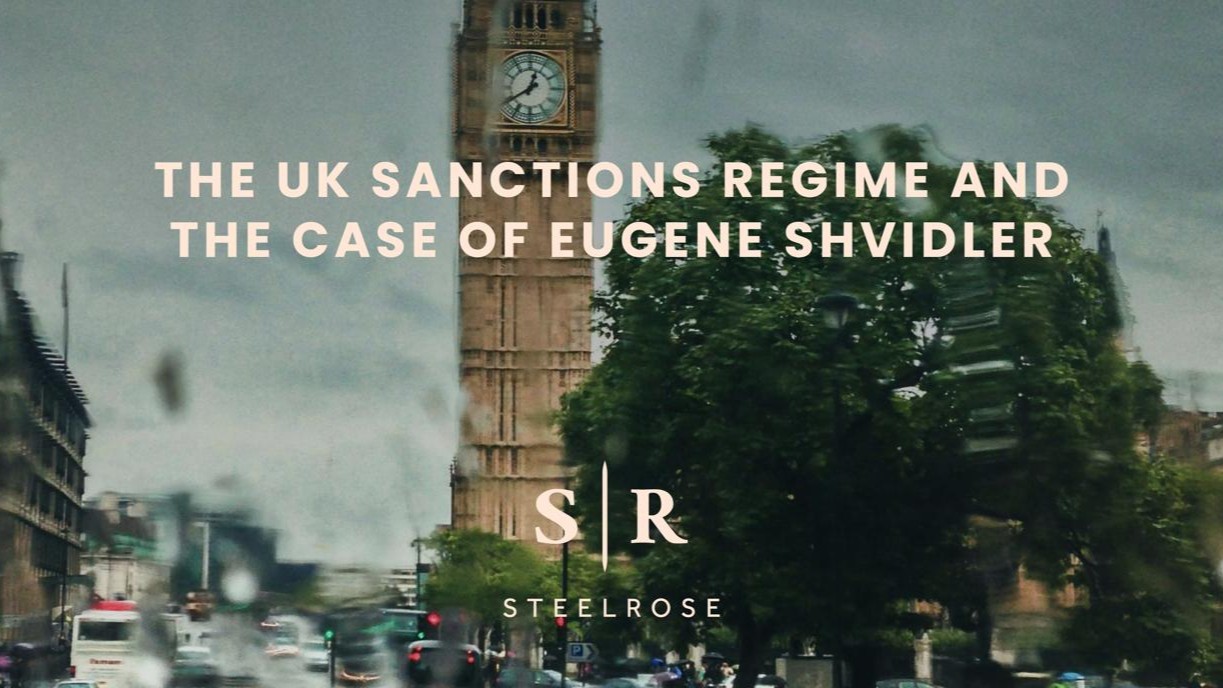Eugene Shvidler, a businessman with dual UK-US citizenship, is central to a legal challenge contesting the UK's sanctions regime. This detailed analysis explores the intricacies of his case through the courts and the potential implications of the awaited Supreme Court decision.
1. Facts:
Eugene Shvidler finds himself in the legal spotlight due to his historical business affiliations with Russian oligarch Roman Abramovich and his role in companies pivotal to the Russian economy, such as Sibneft and Evraz. His designation under the UK sanctions regime in March 2022 as a sanctioned individual raises critical questions about the extent of these ties and their implications.
2. Legal Journey:
3. Supreme Court Considerations: The upcoming review by the Supreme Court will critically assess the balance struck between national security and individuals’ rights, questioning the proportionality and legality of the sanctions imposed on Shvidler under the European Convention on Human Rights.
4. Implications: The decision will likely impact how sanctions are applied and designated within the UK, particularly concerning individuals with international business ties. It will either reinforce the government's stance on sanctions or call for a more nuanced application that considers individuals’ circumstances more closely.
Expert Commentary: Francis Bond notes the government’s robust track record in upholding sanctions in court, highlighting the potential for this case to recalibrate the evidentiary and procedural frameworks for future sanctions designations.
Conclusion: As Shvidler's case progresses, it serves as a key indicator for the robustness of UK sanctions and their oversight. It underscores the delicate balance the government must maintain between enforcing international policy and upholding the rights of its citizens.
Disclaimer: This post is for informational purposes only and does not constitute legal advice. SteelRose Legal Ltd does not advocate or endorse any specific viewpoint.
1. Facts:
Eugene Shvidler finds himself in the legal spotlight due to his historical business affiliations with Russian oligarch Roman Abramovich and his role in companies pivotal to the Russian economy, such as Sibneft and Evraz. His designation under the UK sanctions regime in March 2022 as a sanctioned individual raises critical questions about the extent of these ties and their implications.
2. Legal Journey:
- Ministerial Review: Shvidler first sought to overturn his designation administratively, which proved unsuccessful.
- High Court Decision (August 18, 2023): The High Court upheld the sanctions, emphasizing the Foreign Secretary’s broad discretion and the strategic importance of sanctions as a deterrent.
- Court of Appeal Decision (February 27, 2024): Court of Appeal upheld the sanctions and reaffirmed the sanctions' severity and necessity, stressing their role and impact in affirming UK's stance against Russian aggression.
3. Supreme Court Considerations: The upcoming review by the Supreme Court will critically assess the balance struck between national security and individuals’ rights, questioning the proportionality and legality of the sanctions imposed on Shvidler under the European Convention on Human Rights.
4. Implications: The decision will likely impact how sanctions are applied and designated within the UK, particularly concerning individuals with international business ties. It will either reinforce the government's stance on sanctions or call for a more nuanced application that considers individuals’ circumstances more closely.
Expert Commentary: Francis Bond notes the government’s robust track record in upholding sanctions in court, highlighting the potential for this case to recalibrate the evidentiary and procedural frameworks for future sanctions designations.
Conclusion: As Shvidler's case progresses, it serves as a key indicator for the robustness of UK sanctions and their oversight. It underscores the delicate balance the government must maintain between enforcing international policy and upholding the rights of its citizens.
Disclaimer: This post is for informational purposes only and does not constitute legal advice. SteelRose Legal Ltd does not advocate or endorse any specific viewpoint.
